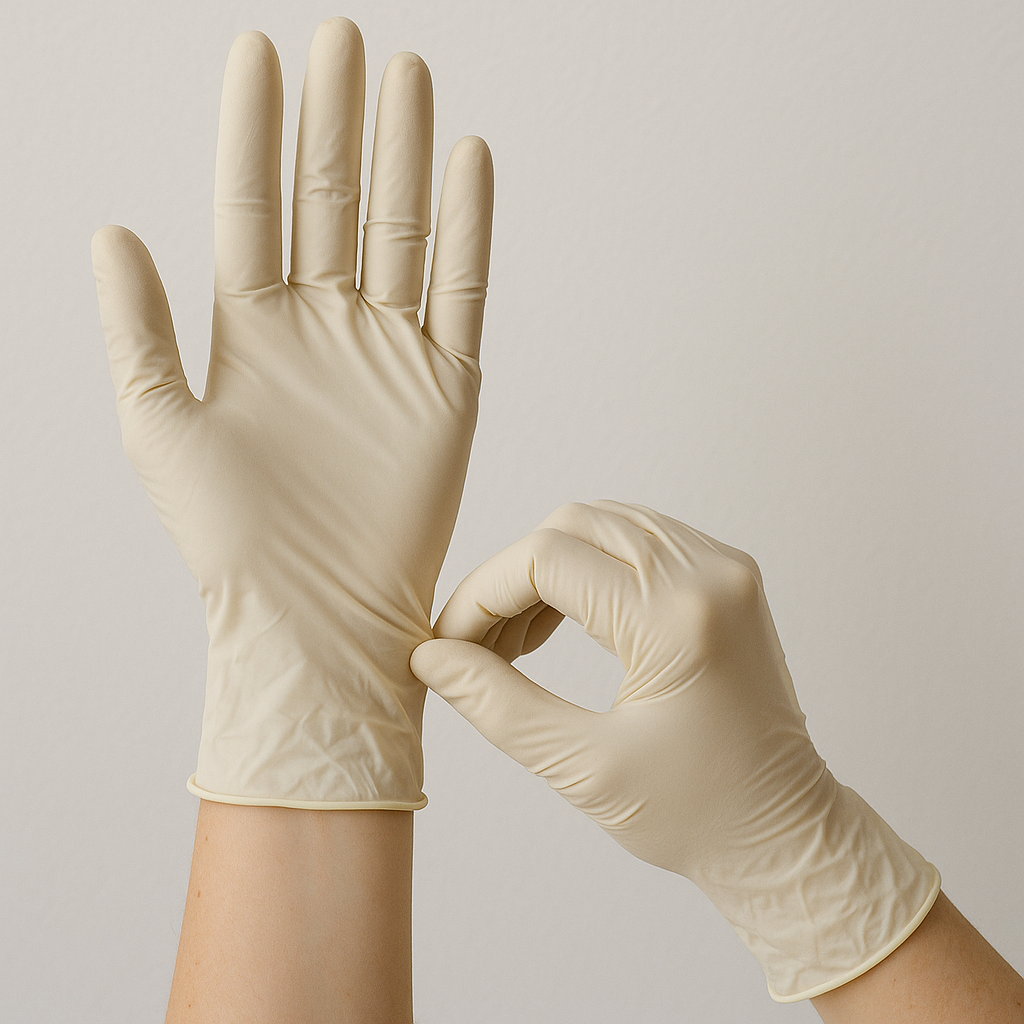When it comes to maintaining strict hygiene standards in dental practices, gloves are non-negotiable. From routine cleanings to complex surgical procedures, dental professionals depend on gloves to create a protective barrier between themselves, their patients, and potential contaminants. But not all gloves are created equal. In recent years, nitrile gloves have emerged as the gold standard in dental care.
In this blog post, we’ll dive deep into what makes nitrile gloves a superior choice for dental professionals, how they compare to other materials like latex and vinyl, and the key benefits they bring to your practice.
What Are Nitrile Gloves?
Nitrile gloves are made from synthetic rubber, known as nitrile butadiene rubber (NBR). This material is a compound derived from acrylonitrile and butadiene, two key components that give nitrile its high resistance to chemicals, punctures, and tears. Originally developed as a latex alternative for individuals with latex allergies, nitrile gloves have quickly become a staple in medical and dental environments.
Key Benefits of Nitrile Gloves in Dentistry
1. Latex-Free & Allergy Safe
One of the most significant advantages of nitrile gloves is that they are 100% latex-free. Latex allergies, while not extremely common, can cause serious reactions in both patients and healthcare providers. By choosing nitrile, dental professionals eliminate the risk of triggering these reactions—ensuring a safer environment for everyone.
2. Exceptional Puncture Resistance
Dentists and hygienists frequently use sharp instruments that can easily compromise lower-quality gloves. Nitrile gloves are up to three to five times more puncture-resistant than latex, offering superior protection against accidental tears or needle sticks.
3. Chemical Resistance
Dental procedures often involve exposure to chemicals and disinfectants—from cleaning agents to impression materials and adhesives. Nitrile gloves provide excellent resistance against a wide range of chemicals, including:
- Hydrogen peroxide
- Sodium hypochlorite
- Glutaraldehyde
- Alcohol-based compounds
This makes nitrile ideal for maintaining both safety and glove integrity throughout the workday.
4. Improved Tactile Sensitivity
Earlier generations of nitrile gloves were known for being stiff or uncomfortable. However, modern formulations offer high tactile sensitivity, allowing dentists to perform delicate procedures without sacrificing precision. The gloves contour to the hand and provide a snug, comfortable fit—making them ideal for extended use.
5. Durability Without Compromising Comfort
Dentists and dental assistants often wear gloves for hours at a time. Poor-quality gloves can cause hand fatigue, sweating, or discomfort. Nitrile gloves are designed to be both durable and flexible, with features such as:
- Powder-free interiors (to avoid drying out skin)
- Textured fingertips (for improved grip)
- Thinner profiles (for enhanced comfort)
Nitrile vs. Latex vs. Vinyl: A Quick Comparison
| Feature | Nitrile Gloves | Latex Gloves | Vinyl Gloves |
|---|---|---|---|
| Allergy Risk | None (latex-free) | High (latex protein) | Low |
| Puncture Resistance | Excellent | Good | Poor |
| Chemical Resistance | Excellent | Moderate | Poor |
| Fit & Comfort | Excellent | Excellent | Moderate |
| Tactile Sensitivity | High | High | Low |
| Cost | Moderate | Low-Moderate | Low |
Conclusion: While latex gloves are known for comfort and tactile feedback, their allergy risk and lower chemical resistance are major drawbacks. Vinyl gloves are inexpensive but offer minimal protection and sensitivity. Nitrile strikes the perfect balance—offering safety, comfort, and performance.
When to Use Nitrile Gloves in Dental Practice
Nitrile gloves are ideal for a variety of dental settings and procedures, including:
- Routine cleanings and exams
- Root canals and extractions
- Orthodontic work
- Dental surgeries
- Sterilization and lab work
- Handling impression materials and disinfectants
Whether you're dealing with biohazards or chemicals, nitrile gloves provide a reliable defense layer.
Sustainability and Disposal Considerations
Although nitrile gloves are not biodegradable like some natural rubber options, many manufacturers now offer eco-friendlier nitrile gloves with reduced environmental impact. Some are even made with lower carbon emissions or recyclable packaging.
Proper disposal in medical waste bins is critical to ensure safety and hygiene compliance.
Final Thoughts
Nitrile gloves have transformed infection control in dentistry. Their durability, comfort, chemical resistance, and allergy-safe design make them the ideal choice for any modern dental practice. By investing in high-quality nitrile gloves, you're not only protecting your team and patients—but also enhancing the precision and confidence with which you work every day.





